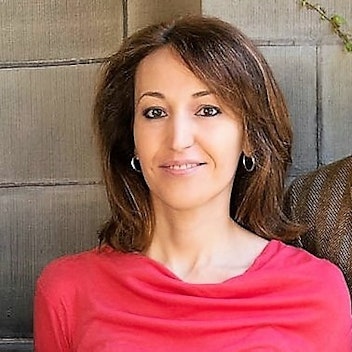The (Northern) League, the National Front and programmatic proposals about EU affairs

This post illustrates how the electoral strategies that embrace negative references to EU affairs by the National Front and the (Northern) League did not enhance the proposals about EU affairs between pro-European parties during the Great Recession and at the time of the Brexit referendum.
To do so, we produced data from the party manifestos authored by the National Front (FN 2012, 2017), Republic Onwards! (EM! 2017), Socialist Party (PS 2012, 2017), The Republicans (LR 2017), Union for a Popular Movement (UMP 2012); Democratic Party (PD 2013, 2018), Five Star Movement (M5S 2013, 2018), Go Italy (FI 2018), (Northern) League (LN 2013, L 2018), and People of Freedom (PdL 2013).i
To organize party preferences on the most prominent EU public policies at that time, we followed Juncker’s scenarios for the future of Europe. We used the following headings: “nothing but the single market”, “doing less more efficiently”, “carry on”, “those who want more do more”, and “doing much more together” (European Commission, 2017).
In doing do, we focused on programmatic proposals about the following: single market; trade; Economic and Monetary Union; Schengen; migration; security; foreign policy and defence; and EU budget. All the ideas analyzed are given in table 3 below this post.
Our data shows how the Northern League and the National Front defended disintegration, while mainstream parties supported the most pro-EU scenarios for the EU 27 by 2025, i.e., “doing much more together” and “those who want more do more”. See table 1 below.
Table 1: Model of (dis)integration preferred by the political parties examined, France and Italy, 2012-2018.
Source: author’s own work.
France
In France, the most prominent idea evidenced on the party platforms which concerned EU politics was that of protection. Notwithstanding, this emphasis on protection as a kind of country-wide policy objective was not brought about by the National Front in 2012. Quite the contrary, not just in the form of the protection of public services, but also in terms of consumer, environmental, and farmer/agricultural protection it was also part of the Socialist Party’s platform, which between 2012 and 2017 was the governing party. The mainstream center-right party (at that point, the Union for a Popular Movement) also supported protection of the national agriculture industry, as The Republicans, the Republic Onwards! and the National Front did in 2017.
Table 2: In France, ‘protection’ was not an issue owned by any individual party.
Source: author’s own work.
The key difference between the National Front and the mainstream parties was that, to attain that common objective of protection, the National Front supported the idea of devolving authority from the supranational level in core policy areas, from the single market to home affairs, and this also included monetary policy. However, at the same time, other parties relied on the empowerment of EU bodies in these policy domains to protect French interests and citizens. Proposals in favor of deepening European integration were shared both by the center-right and the center-left (Socialist Party 2012 and 2017; Union for a Popular Movement 2012; The Republicans 2017; Republic Onwards! 2017).
Table 3 mentioned earlier sheds light on how scarce innovation was with regard to EU competences, apart from when it came to introducing changes in EU law and trade agreements to protect national industries, workers, and consumers. The same is true of measures to reinforce EU capacity for border control – the exception being the Socialist Party (2017) proposal for a European investment plan which was devoted to ecological transition and research.
Italy
Moving on to Italy, the first remark to be made is that in 2013 the Northern League showed no interest in issuing a differentiated array of proposals on EU affairs. In fact, it delivered a manifesto with exactly the same content as the People of Freedom’s platform (formally, there had been no common manifesto authorized by the center-right coalition), in which the section on the EU, entitled “More Europe of the people, less euro bureaucracy,” included, according to the title, some federalizing proposals, such as the empowerment of the European Parliament and the launch of Eurobonds.
Thus, in 2013, the Northern League, in alignment with the People of Freedom, positioned itself in favor of deepening European integration. What’s more, over time, it endorsed no negative reference to the EU through its general election manifestos until the platform that was issued in 2018. Thus, the arrival of Matteo Salvini as the secretary of the Northern League in December 2013, which was accompanied by the impact on Italy of the 2015 refugee crisis, marked a turning point in the activation of EU issues by the party.
In addition, Go Italy (2018) issued some programmatic proposals that could be classified under the category ‘less Europe’, e.g., the control of Italian interest by Italy itself, especially regarding its agricultural products, and more generally the Made in Italy classification, as well as the reduction of Italy’s contribution to the EU budget. In doing so, Go Italy was the only mainstream party that endorsed disintegration stances in the four elections examined for this post (France 2012 and 2017; and Italy 2013 and 2018).
Furthermore, it could be of interest to pay attention to the Five Star Movement’s use of EU affairs, whose agenda was labelled as Euro-alternative due to its pro-systemic opposition. It is worth noting that in 2013, at the height of the Great Recession, no proposal on EU themes could be found in its platform. Like the Northern League, the Five Star Movement politicized EU affairs later, for the 2018 general election. In 2018, as in the 2014 European election, it made a pledge for EU disintegration: an Italian referendum about remaining part of the eurozone or returning to the lira. However, the Five Star Movement activated EU issues in a way that is much closer to the idea of contributing to EU outputs, which aims at changing the EU from within. It did not confront EU competences in other policy areas, and it proposed ideas as regards diverse EU policies. For instance, in terms of trade, it defended an EU policy that would be more respectful of workers’ rights and environmental protection, while rejecting commercial agreements with the United States (TTIP) and Canada (CETA). In addition, it advocated for an EU without austerity, the abolishment of the fiscal pact, the exclusion of investments in innovation and new economic activities from the annual budgetary deficit targets, as well as the intensification of EU action against tax evasion. Moreover, the Five Star Movement endorsed some proposals that deepened European integration, such as the adoption of Eurobonds, the creation of a compulsory mechanism to redistribute refugees as well as sanctions for the Member States that didn´t honor their commitments.
Concluding remarks
This post shows how, in the key period 2012-2018, the Northern League and the National Front brought about extreme polarization with regard to European integration, i.e., ‘More’ vs. ‘Less’ Europe, but they didn´t substantiate any discussions about EU themes. Predictably, mentions of ‘Europe’ included in their platforms did not entail any effort to produce innovative proposals about EU policies. The point is that neither party enhanced the programmatic proposals delivered by their rivals either, be they mainstream or other challenger parties like the Euro-alternative Five Star Movement.
Table 3: Proposals about EU affairs contained in the French and Italian platforms examined (2012-2018).
These were organised into three categories (less Europe, policy proposals circumscribed to current EU competences, and more Europe) corresponding to the columns, while the rows show the rubrics based on the Commission’s scenarios for the future of Europe (single market; trade; Economic and Monetary Union; Schengen, migration, and security; foreign policy and defence; and EU budget), plus the extra category other institutional affairs. The presentation of this information allows readers to effortlessly grasp, with a simple glance top-down, policy positions and eventually shifts on them from one election to the next in both France and Italy. Furthermore, by reading horizontally (left to right), it shows the extent to which party proposals were differentiated in each election.
Source: author’s own work. French parties: EM !: Republic Onwards!; FN: National Front; LR: The Republicans; PD: Democratic Party; PS: Socialist Party; UMP: Union for a Popular Movement. Italian parties: FI: Go Italy; M5S: Five Star Movement; (N)L: (Northern) League. PdL: People of Freedom.
National platforms content-analyzed for this research
1. France
National Front (Front National) (2012), Marine Le Pen: la voix du peuple, l'esprit de la France.
National Front (Front National) (2017), Engagements présidentiels Marine 2017.
Republic Onwards! (En Marche!) (2017), Programme En Marche! Emmanuel Macron président.
Socialist Party (Parti Socialiste) (2012), Le changement c´est maintenant: mes 60 engagements pour la France.
Socialist Party (Parti Socialiste) (2017), Un contrat clair pour la France, une gauche constructive et vigilante.
The Republicans (Les Républicains) (2017), Majorité pour la France – Union de la droite et du centre: projet (This programmatic document was conjointly issued by The Republicans and the Union of Democrats and Independents).
Union for a Popular Movement (Union pour un Mouvement Populaire) (2012), Project 2012: protéger et préparer l´avenir des enfants de France.
2. Italy
Democratic Party (Partito Democratico) (2013), L´Italia giusta: programma.
Democratic Party (Partito Democratico) (2018), Più forte, più giusta: L´Italia.
Five Star Movement (Movimento 5 Stelle) (2013), Programma.
Five Star Movement (Movimento 5 Stelle) (2018), Programma.
Go Italy (Forza Italia) (2018), Un programma per l´Italia: per la crescita, la sicurezza, le famiglie e la piena occupazione.
League (Lega) (2018), Programma di governo Salvini Premier: la rivoluzione del buonsenso.
Northern League (Lega Nord) (2013), Programma.
People of Freedom (Il Popolo della Libertà) (2013), Programma (Although in 2013 the Italian center-right coalition did not authorize a single program, the manifestos issued by its component parties, the Northern League, and the People of Freedom, were equal in content).

Citation
This content is licensed under a Creative Commons Attribution 4.0 International license except for third-party materials or where otherwise noted.








